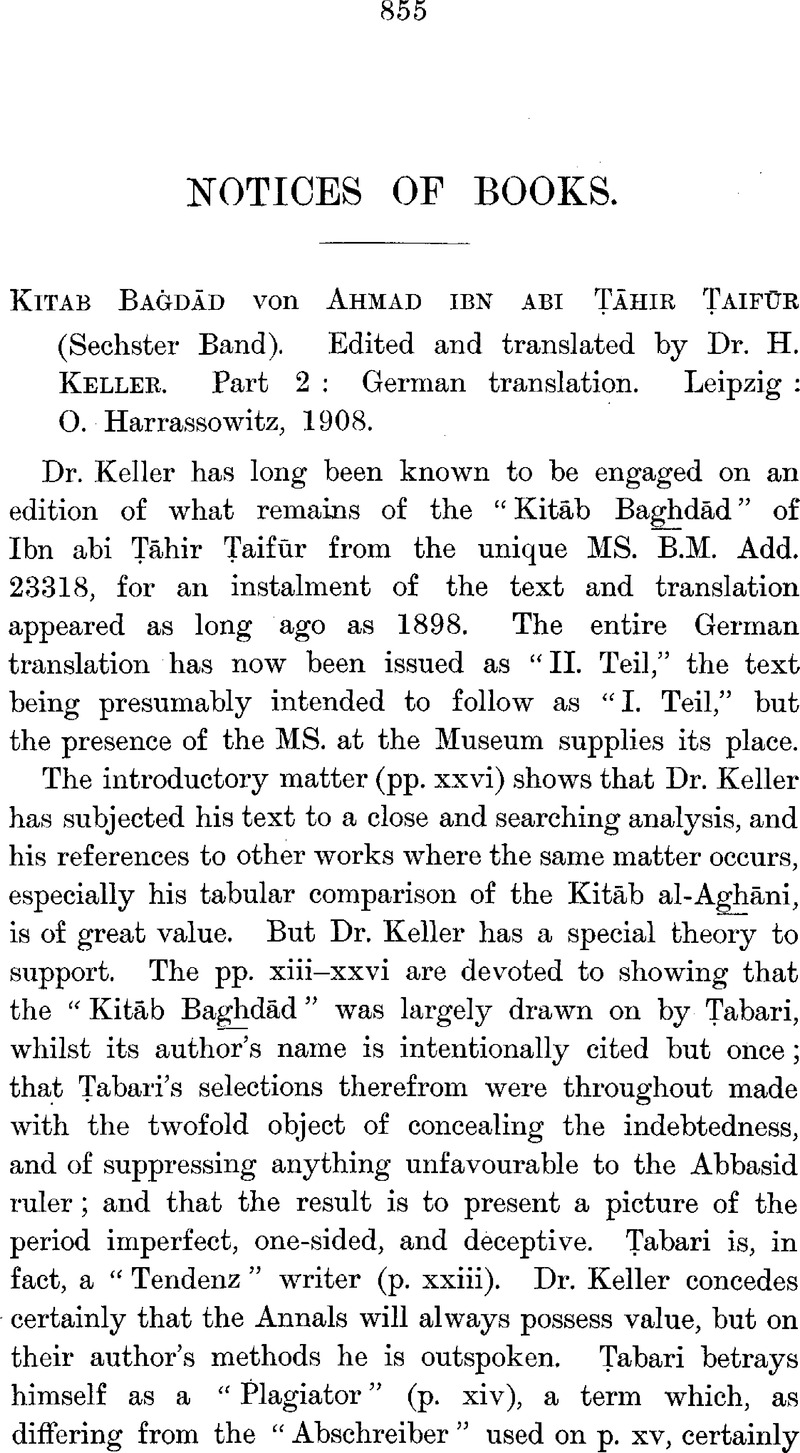No CrossRef data available.
Published online by Cambridge University Press: 15 March 2011

page 856 note 1 Ex I.A. recepi. Cod. … ![]() Taif. corrupte, etc.
Taif. corrupte, etc.
page 857 note 1 The meaning of the words ![]() in the passage in Ṭabari has been declared from Leyden to be: “it was feared that this expedition of 'Abd al-Raḥmān had proceeded on a plan on which he had acted,” viz., of rebellion, as undertaken without the governor's leave. Professor Margoliouth points out that in Ibn
in the passage in Ṭabari has been declared from Leyden to be: “it was feared that this expedition of 'Abd al-Raḥmān had proceeded on a plan on which he had acted,” viz., of rebellion, as undertaken without the governor's leave. Professor Margoliouth points out that in Ibn ![]() , iii, 251, 1. 6 a.f., the passage runs:
, iii, 251, 1. 6 a.f., the passage runs: ![]() viz., that it was feared he had acted on secret instructions.
viz., that it was feared he had acted on secret instructions.
page 858 note 1 ![]() I append the story immediately preceding it in the
I append the story immediately preceding it in the ![]() , as also illustrating the Caliph's extraordinary good nature. Both were probably taken by Ibn Ḥamdūn from the same source:—
, as also illustrating the Caliph's extraordinary good nature. Both were probably taken by Ibn Ḥamdūn from the same source:—


Ma'mūn's dictum is attributed to Yaḥya the Barmecide by Ibn ![]() , in his Life, de Sl. Eng., iv, p. 111.
, in his Life, de Sl. Eng., iv, p. 111.
page 859 note 1 The volume abounds with interesting matter, and although but a part of the ![]() is known to be extant, that part will afford matter for four volumes. The work is being edited by Professor D. S. Margoliouth for the Gibb Memorial Series.
is known to be extant, that part will afford matter for four volumes. The work is being edited by Professor D. S. Margoliouth for the Gibb Memorial Series.
page 860 note 1  B.M. Add. 23318, fol. 44b.
B.M. Add. 23318, fol. 44b. ![]() meaning, “He (Ṭāhir) said, changing suddenly after his cheerfulness and friendliness with me: ‘Saturate it (the letter) with oil, and stuff your … with it,’ using the plain Arabic word and no euphemism.”
meaning, “He (Ṭāhir) said, changing suddenly after his cheerfulness and friendliness with me: ‘Saturate it (the letter) with oil, and stuff your … with it,’ using the plain Arabic word and no euphemism.” ![]() is, literally, ‘such and such a part of your person.’ The word, in fact, used was, probably,
is, literally, ‘such and such a part of your person.’ The word, in fact, used was, probably, ![]() but there are many synonyms.
but there are many synonyms.
page 864 note 1 It has been suggested to me that ![]() has no proper agent, and that by amending the passage
has no proper agent, and that by amending the passage 
 can bear its ordinary sense.
can bear its ordinary sense.